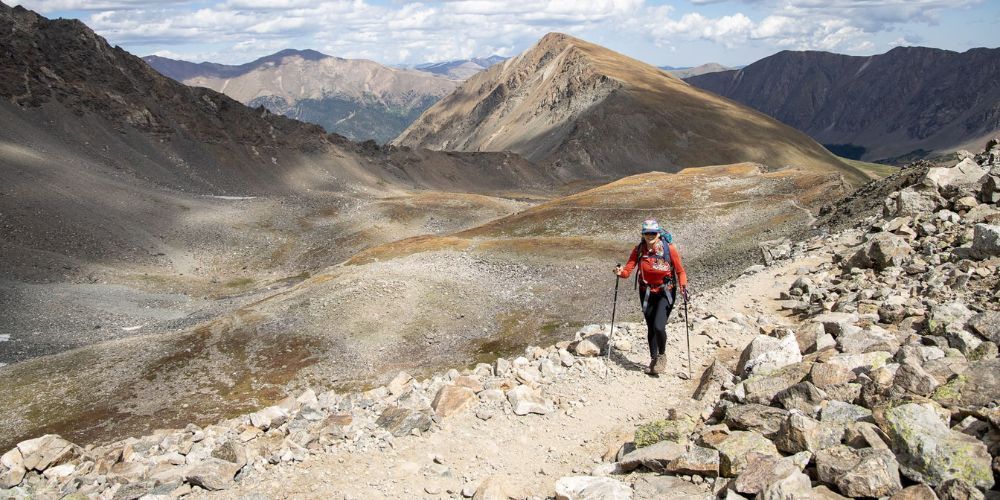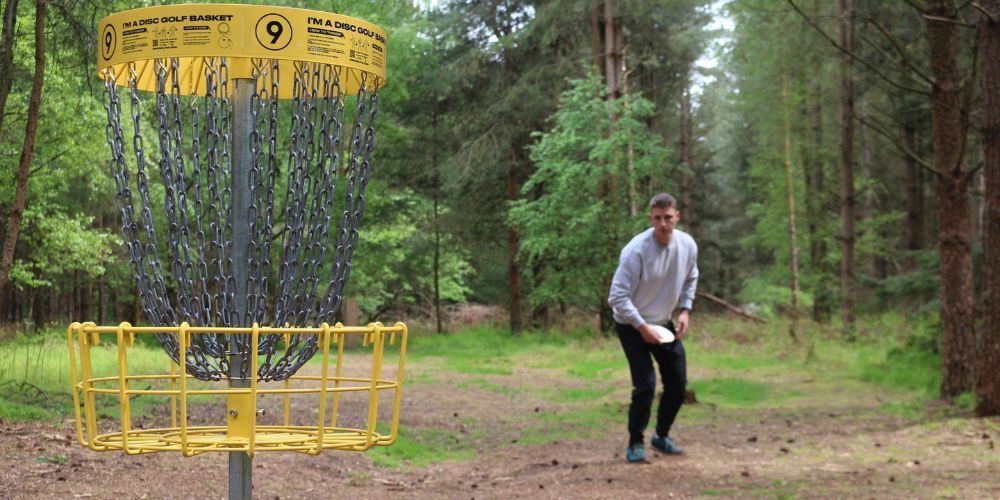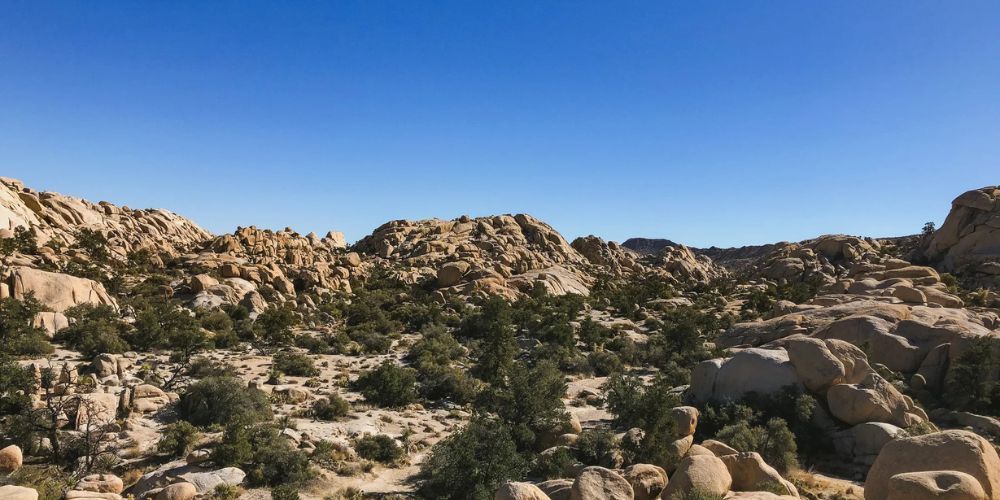Hiking for Mental Health: Discover the Mind-Body Benefits of Nature
July 21, 2024
Imagine escaping the daily grind and finding solace on a peaceful trail surrounded by towering trees and calming streams. Hiking isn't just a way to enjoy the outdoors; it's a proven method to improve your mental health. Scientific studies show that a 90-minute walk in nature can reduce stress, anxiety, and even symptoms of depression.
You see, our bodies are designed to connect with nature, a concept many hikers understand deeply through their own experiences. Picture yourself walking along a path where you can hear leaves crunching beneath your feet and feel a gentle breeze against your skin—these simple moments offer profound psychological benefits. We've gathered comprehensive research and practical tips to help you start hiking safely while reaping its incredible mind-body benefits.
Hiking offers numerous mental well-being benefits, including mood improvement, reduced anxiety and muscle tension, increased creative problem-solving abilities, and potential reduction in symptoms of ADHD in children. It can also aid in preventing or slowing dementia by promoting brain health through spatial navigation, memory, and attention.

The Positive Impact of Nature on the Mind
Have you ever felt a sense of peace while walking in a quiet forest, or calm while sitting by a bubbling brook? These experiences aren't just pleasant; they actually have a significant impact on your mental well-being. Studies have shown that taking a 90-minute walk in natural surroundings can reduce negative thoughts about oneself, often associated with conditions like depression and anxiety.
This calming effect isn't just some placebo—there's science behind it. It's called "biophilia," a term coined by biologist E.O. Wilson, highlighting our innate tendency to connect with nature. This connection plays a crucial role in promoting mental health, giving us an escape from the hustle and bustle of everyday life.
It's like stepping into a warm bath after a long day; there's an immediate feeling of relaxation. Similarly, being immersed in nature helps ease stress and brings about a tranquil state of mind.
Furthermore, forest environments, beyond their picturesque beauty, have been noted for their therapeutic effects on mental health. Trees release natural chemicals that physically improve mood and reduce stress levels.
"The clearest way into the Universe is through a forest wilderness." – John Muir
When wandering among trees and under the open sky, your mind tends to quiet down. Unlike urban settings, where constant noise and activity can be overwhelming, natural landscapes provide a soothing environment that allows your mind to rest.
It's like nature whispers to you to take it easy for a while and just breathe!
The research clearly highlights how nature has an incredibly positive influence on our mental well-being. It not only reduces stress but also promotes relaxation and contemplative thought, encouraging a healthier state of mind overall.
Now that we've explored the profound mental well-being benefits of hiking in nature, let's turn our attention to the physical benefits that this activity offers.
Physical Benefits of Hiking
Hiking isn't just invigorating for the mind; it boasts a plethora of physical health benefits that contribute to overall well-being. The act of hiking engages various muscle groups, leading to enhanced cardiovascular fitness and muscle strength. This, in turn, elevates self-esteem and improves mood, making it an excellent way to maintain physical well-being while enjoying the great outdoors.
One of the key physical benefits of hiking is its role in weight management. The activity burns an average of 200-250 calories per hour, making it an effective method to stay active and aid in weight control. Moreover, engaging in regular physical activity like hiking helps reduce the risk of chronic diseases such as heart disease, hypertension, and diabetes.
Furthermore, the physical exertion experienced during hiking stimulates blood flow to the brain. This increased blood flow aids in the removal of toxins and supplies oxygen and essential nutrients crucial for cognitive function. As a result, hiking not only benefits the body but also supports brain health by promoting optimal circulation and nourishment for mental clarity and focus.
It's important to note that while providing numerous health benefits, it's imperative to approach hiking at a comfortable pace and build up intensity gradually, especially for individuals who are new or returning to this form of physical activity.
With its ability to promote weight management, reduce the risk of chronic diseases, improve cardiovascular fitness, and support brain health through enhanced blood circulation, hiking emerges as a holistic approach to maintaining physical well-being.
Improving Memory and Cognitive Function
Our brains are constantly working, taking in new information, processing thoughts, and recalling memories. Just like any other muscle in our bodies, the brain also needs regular exercise to stay sharp and healthy. This is where hiking plays a pivotal role in enhancing our cognitive abilities.
When we step into the great outdoors, our brains are engaged in various ways. Hiking through natural environments demands active navigation and spatial awareness, stimulating different parts of the brain responsible for memory encoding and cognitive function. As we navigate through rugged terrain, our brains are constantly processing visual and spatial information, creating a mental map of the surroundings, and making decisions based on changing environmental cues.
This mental workout has been validated by a study conducted by the University of British Columbia, which found that aerobic exercise, such as hiking, can actually increase the size of the hippocampus—a vital region of the brain associated with memory and learning. The results underscored that regular engagement in activities like hiking can have profound long-term implications for cognitive health.
Essentially, what this means is that hiking promotes brain plasticity, which is the ability of the brain to reorganize itself by forming new neural connections throughout life. It acts as a form of mental cross-training, allowing us to build resilience against age-related brain deterioration and cognitive decline.
Moreover, hiking allows us to immerse ourselves in the sights and sounds of nature, providing a welcome break from the relentless stimuli of modern life. When we disconnect from technology and wander through natural landscapes, our brains can recharge.
Think of it as giving your brain a refreshing vacation. Just like how taking a break from work rejuvenates your mind, stepping out onto a trail can invigorate your cognitive faculties.
By engaging in these brain-stimulating activities, we not only cultivate clearer thinking but also lay the foundation for maintaining cognitive vitality as we age. So, lace up those hiking boots and embark on a journey to boost not just your physical fitness but your mental acuity as well!
As we've explored the profound impact of nature on our cognitive well-being through hiking, let's now investigate the fascinating role of endorphin and serotonin release on mood elevation.
Endorphin and Serotonin Release
As you tread across rugged paths and through serene forests, your body is orchestrating something extraordinary behind the scenes. When you hike, especially on challenging terrain, your brain produces endorphins - these natural chemicals act as both painkillers and mood enhancers, contributing to the feeling known as the "hiker's high." It's a euphoric state where stress melts away, and anxiety recedes, often leaving hikers feeling joyful and refreshed.
The Science Behind It
Endorphins, released during moderate physical activity like hiking, have been found to be three to four times higher than baseline levels. This surge in endorphins not only acts as a natural mood booster but also helps reduce feelings of pain or discomfort. Think of it as your body's way of rewarding you for tackling that steep incline or conquering that tricky trail. So when you feel elated after a strenuous hike, it's not just the beautiful scenery—it's also your body saying "good job!"
On top of the endorphin rush, there's also serotonin. After just 60 minutes of hiking, serotonin levels increase by 20%, lending further support to the positive impact of hiking on mental health. Regular hikers have been observed to maintain 25% higher serotonin levels compared to non-hikers. This neurotransmitter is known for its role in regulating mood, appetite, and sleep—essential factors for overall mental well-being.
Long-lasting Effects
The effects are not fleeting either. Even after completing a hike, endorphin levels in the body remain elevated for 2-3 hours post-exercise. This means that the benefits of hiking go beyond the immediate experience; they extend into our everyday lives, contributing to feelings of contentment long after the trek is over.
That serene sensation you experience after a fulfilling hike isn't just a figment of your imagination; it is a physiological response triggered by the release of these vital neurotransmitters. By simply lacing up your boots and hitting the trails, you're giving your mind a significant chemical boost—an all-natural burst of happiness and relaxation that lingers long after you've returned from your outdoor adventure.
With an understanding of how hiking positively affects our mental and physical well-being, let's now explore strategies targeted at reducing anxiety and mood disorders.

Reducing Anxiety and Mood Disorders
Spending time in nature can offer powerful relief from feelings of anxiety and depression. When surrounded by the beauty of the natural world, our bodies respond in amazing ways. It's not just about being out in the open air; it's also about how nature works its magic on our brains.
Nature helps to lower cortisol levels, the stress hormone that can wreak havoc on our mental health if it builds up too much. When stressed, our cortisol levels rise due to our body being in "fight or flight" mode. However, when surrounded by nature, the opposite happens: being outdoors calms our stress responses and brings those cortisol levels down. This provides a natural way to manage the pressures of daily life without expensive therapy or medication - just a good hike.
A study published in the Proceedings of the National Academy of Sciences (PNAS) found that walking in natural settings led to significantly lower activity in the prefrontal cortex—a part of the brain linked to repetitive negative thoughts. So, simply by walking in nature, we can help break that cycle of worry and rumination that can exacerbate symptoms of anxiety and depression.
This means that regular hiking can be highly effective, low-cost therapy for managing anxiety and improving overall mood stability. Instead of being cooped up indoors, stepping out into nature could provide a readily accessible method for alleviating symptoms of these mental health challenges.
It's clear that spending time outdoors has profound effects on our mental well-being—lowering stress hormones, breaking cycles of negative thinking, and offering an affordable way to manage mood disorders.
The benefits of spending time in nature are abundant and impactful. Now, let's shed light on another aspect—how fresh air provides mental clarity and vitality.

Fresh Air and Mental Clarity
Have you ever noticed how a simple breath of fresh air can make you feel clear-headed and ready to take on the world? That feeling is amplified when you're out hiking in nature. The crisp, clean air that fills your lungs during a hike isn't just refreshing; it actually does wonders for your brain.
When you take in that fresh oxygen-rich air, it goes straight to your brain and helps improve your cognitive abilities. Our brains need a whole lot of oxygen to function at their best. When you're hiking and breathing in all that fresh air, your brain gets extra energized and attentive. This boost in oxygen intake has been linked to enhanced concentration and improved problem-solving skills. Studies have shown that people who spend time outdoors have higher levels of attention and creative thinking than those who remain indoors.
Imagine this: It's like giving your brain a big drink of fresh water, something every living thing needs to stay healthy and active.
Think of it this way: When you're working or studying indoors for a long time, the air can become stale, and you might start feeling sluggish or unable to concentrate. On the other hand, when you take a break and step outside for a few minutes, you often feel more alert and focused. Now imagine that feeling but on a much larger scale when you're out hiking through the woods.
The natural setting enables this mental rejuvenation with more than just clean air - it's about being surrounded by life in all its forms. The sounds of birds chirping, the sight of sunlight filtering through tree branches, the feel of cool wind against your skin—these sensory experiences come together to revitalize your mind unlike anything else.
So next time you find yourself seeking mental clarity or struggling with focus, remember that a simple hike could be the remedy you need.
In our bustling lives, nature offers an incomparable retreat for our minds and bodies. Embracing the great outdoors might just be the revitalizing break we all need.
How does hiking improve mental health?
Hiking can significantly enhance mental health by reducing stress, anxiety, and depression. The combination of physical exercise, exposure to nature, and the break from daily routines helps release endorphins and serotonin, which are natural mood lifters. Being in nature also promotes mindfulness and a sense of calm, aiding in mental clarity and emotional balance. Studies have shown that regular hikers experience improved cognitive function and better overall mental well-being, making hiking a valuable activity for those looking to improve their mental health.
What are the physical benefits of hiking that contribute to mental health?
Hiking provides a full-body workout, improving cardiovascular health, strengthening muscles, and enhancing flexibility and balance. These physical benefits contribute to better sleep patterns and higher energy levels, which are crucial for maintaining mental health. The rhythmic nature of walking and the increased oxygen intake can also help clear the mind and reduce feelings of fatigue. Additionally, the physical challenge of hiking can boost self-esteem and confidence, creating a positive feedback loop that enhances both physical and mental well-being.
How can I make hiking a more mindful and therapeutic experience?
To make hiking more mindful and therapeutic, start by choosing trails that suit your fitness level and interest. Focus on the present moment by paying attention to the sights, sounds, and smells of nature around you. Practice deep breathing exercises to enhance relaxation and reduce stress. Set a comfortable pace and take regular breaks to enjoy the scenery and reflect on your thoughts. Bringing along a journal to document your experiences and feelings can also be beneficial. Finally, hiking with a friend or group can provide social support and make the experience more enjoyable and enriching.
Check out the latest guides on hiking gear
Author: William Flaiz










